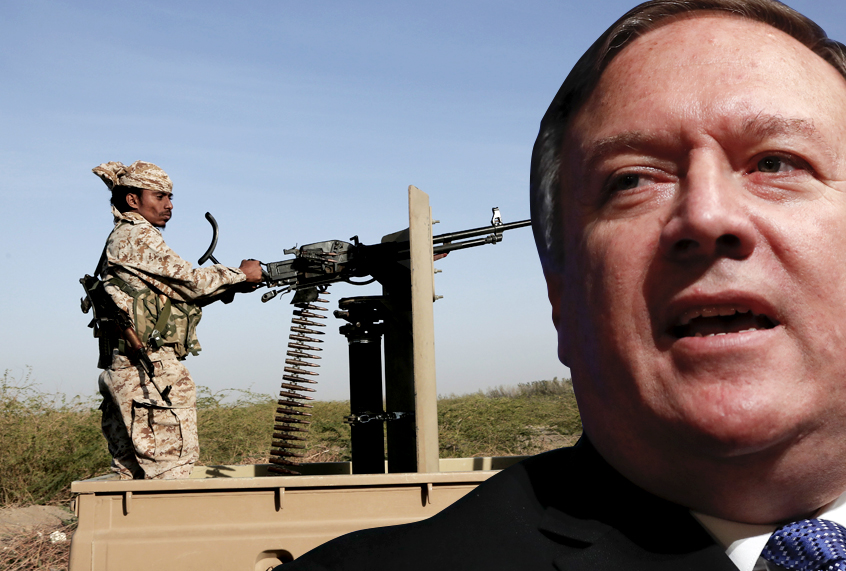A new report reveals that Secretary of State Mike Pompeo is ignoring his staff members’ advice in order to continue supporting Saudi Arabia’s ongoing war against Yemen.
Pompeo was warned that cutting off American military aid to Saudi Arabia could imperil roughly $2 billion in weapons sales to American allies in the Gulf region of the Middle East, according to The Wall Street Journal. Because more than 16,700 Yemeni civilians have been killed or injured in the ongoing conflict between that country and both Saudi Arabia and the United Arab Emirates over the past three years, there is a bipartisan movement in Congress to cut off American military aid to those countries. In contrast, the Trump administration has argued that supporting those countries is necessary to help contain both Iran’s allies and al Qaeda militants.
As the Journal reported:
Mr. Pompeo overruled concerns from most of the State Department specialists involved in the debate who were worried about the rising civilian death toll in Yemen. Those who objected included specialists in the region and in military affairs. He sided with his legislative affairs team after they argued that suspending support could undercut plans to sell more than 120,000 precision-guided missiles to Saudi Arabia and the United Arab Emirates, according to a classified State Department memo and people familiar with the debate.
“While our Saudi and Emirati partners are making progress, we are continuing discussions with them on additional steps they can take to address the humanitarian situation, advance the political track in cooperation with the U.N. Special Envoy’s efforts, and ensure that their military campaign complies with the law of armed conflict and international humanitarian law,” State Department spokeswoman Heather Nauert explained in a statement.
Currently the United States sells weapons and provides aerial refueling to Saudi-led jet fighters that are engaged in the airstrikes against Yemen. This has drawn criticism from Washington politicians; for instance, after a Saudi airstrike hit a school bus and killed more than 40 Yemeni children, human rights researchers and reporters determined that the missile used in the strike had been made in the United states.
When Pompeo consulted foreign policy experts on how to handle Saudi Arabia — specifically in light of a new congressional requirement which compels American aid for refueling operations to be cut off unless Saudi Arabia and the United Arab Emirates can demonstrate every six months for the State Department that they’re minimizing civilian casualties — he consulted the State Department’s Bureau of Near Eastern Affairs, the Bureau of Political-Military Affairs, the Bureau of Democracy, Human Rights and Labor, and the Bureau of Population, Refugees and Migration.
Because the law in question allows America to continue providing support on national security grounds, both the group of experts and various legal advisers argued that Pompeo should reject certification, and tell Congress that they couldn’t certify an effort to minimize civilian casualties, but that the United States would continue with its support for Saudi Arabia and the United Arab Emirates on national security grounds.


